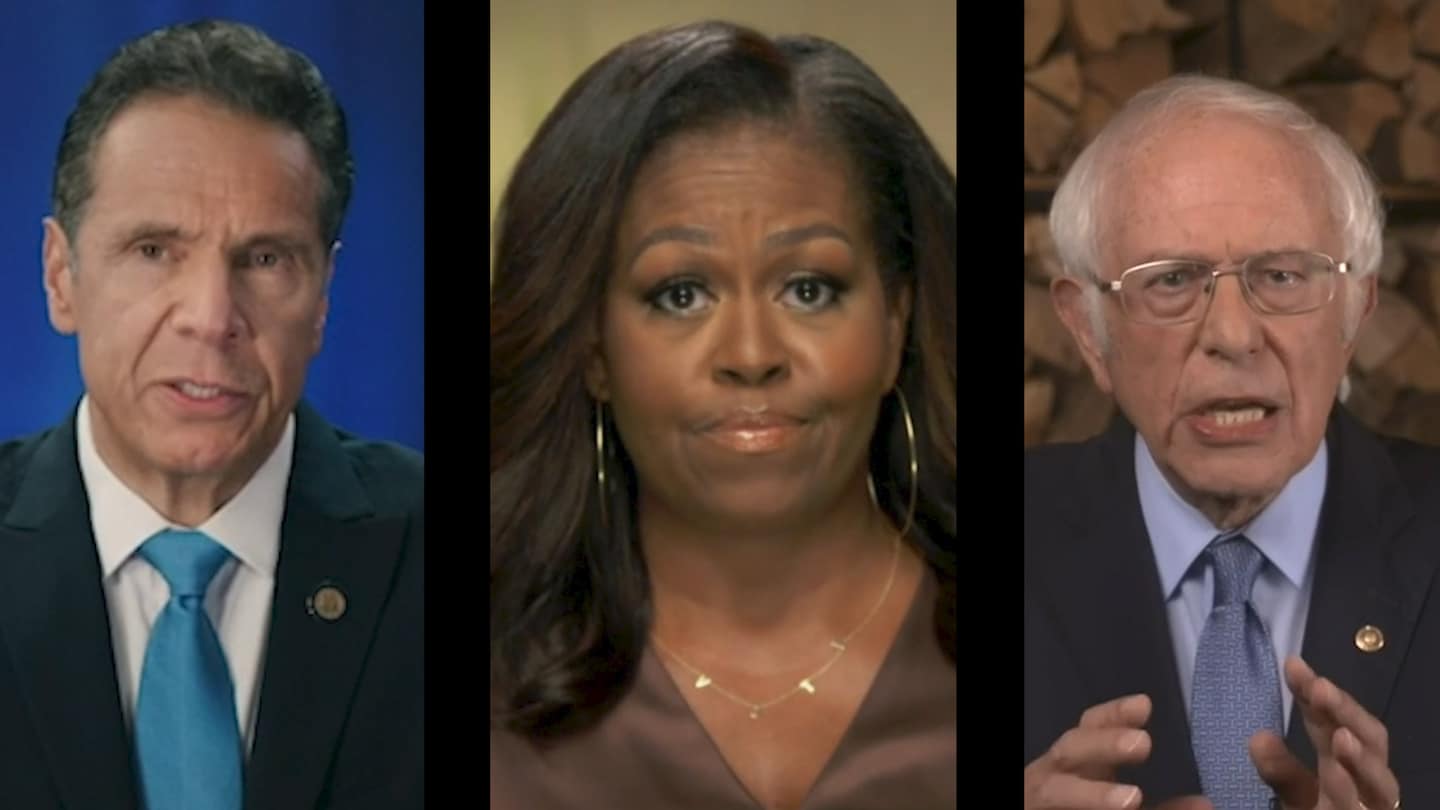The first night of the DNC did something radical. It let us feel normal again.

Presidential candidates frequently sell themselves as extraordinary: as Camelot reborn, as a comet from a place called Hope or as an icon of American business. But the most extraordinary thing about President Trump has proved to be his deficiencies of decency, compassion and honesty. Because of that, qualities that made Biden seem a little small during his 1988 and 2008 presidential campaigns could be transformed into the convention’s most powerful selling points.
Biden has experienced loss that makes him able to relate to our own; as former first lady Michelle Obama put it, “Joe knows the anguish of sitting at a table with an empty chair.” The former vice president is interested in other people; one video segment focused on the friendships he made with Amtrak employees during his years of commuting between his home in Delaware and Washington. He can listen to others, as a segment in which he chatted with activists about criminal justice reform was designed to demonstrate.
In a regular year, such demonstrations of basic emotions and decency would seem like a ludicrous campaign pitch. They are minimum qualifications for the presidency, not signs of unusual skill. But when the job of leader of the free world has been so utterly degraded, there was something restorative about Biden’s reaffirmation of all the norms that have been dented and shattered over the past four years. We’re not going to get extraordinary this time around. We’re lucky if we can claw our way back to a common understanding of what makes a person fit to be president.
That’s not a bad selling point for a moment when the ordinary pleasures of life have become so dangerous that we have to deny them to ourselves. But part of what made the first night of the convention effective was its promise that doing little things can help restore at least some of what we’ve lost. Voting for Biden is the big ask, of course, but the evening’s programming promised viewers that following a school nurse’s instructions to wash our hands and wear our masks, or taking Obama’s advice to lace up comfortable shoes and pack a brown bag dinner, can make a difference, too.
And while the broadcast lacked the rousing speeches punctuated by raucous cheering, it gave viewers an opportunity to experience the kinds of casual interactions that have become fraught or forbidden.
A Trump voter, holding what appeared to be a rocks glass with an almost-finished drink, talked about his regrets in a video shot on a cellphone.
Philonise Floyd talked about the loss of his brother George, whose death in the custody of Minneapolis police officers sparked a global movement, in a room with a painful, poignant “Family Gathers Here” plaque decorated with sunflowers on the mantle behind him.
And Sen. Catherine Cortez Masto (Nev.) appeared from her kitchen, with her wood-paneled cabinets, a table topped with a neat embroidered tablecloth and a bowl of fruit as a backdrop.
There were glitches, of course: a creaky door, odd camera angles, awkward pauses and images made grainy by weak Internet connections. But at a moment when so many of us are keeping our distance from other people, including and especially those we love most, these intimate little visits allowed us to recapture some of what we’ve denied ourselves.
That’s the core promise of the Biden-Harris campaign: Vote for us, and you can have back what you took for granted. The pitch isn’t a fantastical, malignant pledge to make America great in a way it never was. It’s just a reminder that what we had when this year began was good, that it’s worth fighting for and that it’s still within reach.
Watch the latest Opinions video:
Read more:






